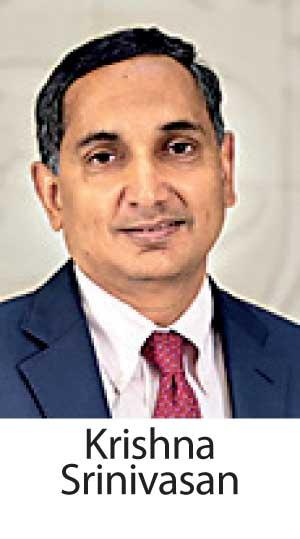Reply To:
Name - Reply Comment
After months of struggle and challenges, Sri Lanka has been successful in fulfilling the 15 tasks set by the
|
Ranil Wickremesinghe |
International Monetary Fund (IMF), and now awaits for the verdict if enough has been done to unlock the bailout, the government said.
President Ranil Wickremesinghe confirmed that only last week the final requirement of the Fund was fulfilled and with that Sri Lanka has done its part to obtain the relief package.
The fifteenth issue that had to be addressed was the increase in electricity tariffs as the severely mismanaged Ceylon Electricity Board (CEB) continues to incur losses, and is a heavy burden on the government.
According to Wickremesinghe, Sri Lanka missed fulfilling the 15 tasks within the set deadline twice. Initially, the IMF gave the government until 31 December 2022 to implement all tasks, and then the deadline was pushed to 31 January 2023. In both instances, Sri Lanka was unable to deliver what was expected from it to release the fund.
“Finally, the deadline was pushed back to February 15. By 06:00 p.m. on February 15, we completed all that was expected of us and sent them to Washington.
“Only one of these fifteen issues was being delayed. It is related to the increase in electricity tariffs. The Electricity Board incurs Rs.230 billion each year in losses,” said Wickremesinghe addressing a businessmen and lawyers in Kandy this week.
The IMF has been firm that government taxes cannot be used to support state-owned institutions, and if so it will not extend assistance.
“One person in this country opposed the decision to increase the electricity tariff. As a result, receiving assistance from the International Fund was delayed by six weeks.
“All 15 tasks assigned to us have been completed. Now it is up to the International Monetary Fund. This is being discussed further,” said Wickremesinghe.
Further, while the Fund has been urging creditors to restructure debt to help struggling economies recover, China, one of the largest creditors, remains stubborn with the restructuring agenda. Tomorrow (February 23), Finance Ministers of the G20 countries will hold a discussion in Bangalore, India where the emphasis will be on how the debt of countries with collapsed economies can be restructured.
“There I hope to discuss the debt restructuring method of Sri Lanka with the Chinese Finance Minister. As per their stand, we have two or three options to implement,” said Wickremesinghe.
IMF remains hopeful of Sri Lanka securing all financing assurances soon to unlock funding
The International Monetary Fund (IMF) remains hopeful of Sri Lankan authorities securing financing assurances from all its bilateral creditors soon, so that the Fund’s Executive Board could give its nod to unlock the envisaged US$ 2.9 billion bailout package to support the crisis-hit economy, a top IMF official said. Sri Lanka has received clear and specific financing assurances from India and the Paris Club nations expressing their support to restructure the debt Sri Lanka owes to them. But China, which is Sri Lanka’s largest bilateral creditor, hasn’t been forthcoming.
from all its bilateral creditors soon, so that the Fund’s Executive Board could give its nod to unlock the envisaged US$ 2.9 billion bailout package to support the crisis-hit economy, a top IMF official said. Sri Lanka has received clear and specific financing assurances from India and the Paris Club nations expressing their support to restructure the debt Sri Lanka owes to them. But China, which is Sri Lanka’s largest bilateral creditor, hasn’t been forthcoming.
The Exim Bank of China in a letter to Sri Lankan authorities offered a two- year moratorium on China’s debt to Sri Lanka, which however fell short of a fully-fledged financing assurance. Sri Lanka’s Foreign Minister this week said the country has completed all prior actions for the envisaged facility and implied that only China’s financing assurance remains an obstacle for Sri Lanka to unlock IMF funding.
“Sri Lankans are making every effort possible to get these assurances and as the IMF, we are at all levels are helping them with that.
The best-case scenario is that we get these assurances and in which case we could go to the Board. I’m hopeful that we could get the kind of assurances we need from China, which will allow us to go to the Board in due course,” IMF Asia Pacific Head Krishna Srinivasan said.
There were news reports this week citing unnamed sources that IMF Executive Board may consider approving the bailout package for Sri Lanka even without China’s financing assurances. However, Srinivasan downplayed those reports as speculation. Meanwhile, he said once Sri Lanka’s programme with the IMF is approved, there is time for the country to engage in good faith negotiations with its private creditors. “Sri Lankan authorities have already started engaging with the private sector creditors very actively. Already, there is a letter from bond holders expressing support. Those negotiations will come into fruition after the programme is approved,” Srinivasan said.